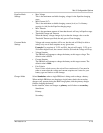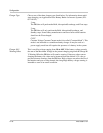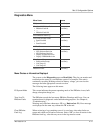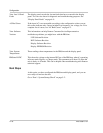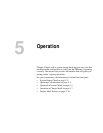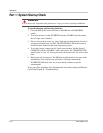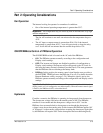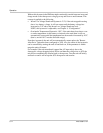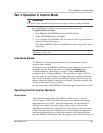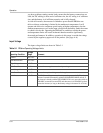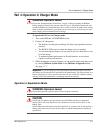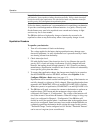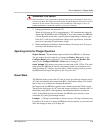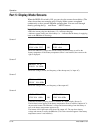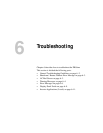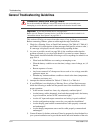
Part 3: Operation in Inverter Mode
445-0089-01-01 5–5
Part 3: Operation in Inverter Mode
Once the PROsine is installed, you can operate it in Inverter mode.
To operate in Inverter mode:
1. Place PROsine’s ON/OFF/REM switch in the ON position.
2. Set the INVERTER switch to ENABLE.
3. If AC is present, the STANDBY LED will come on. If AC is present, remove
it and the inverter will come on.
Once the INVERTING LED is on, the PROsine is ready to deliver AC power
to the loads.
Load Sensing Mode
The PROsine’s Load Sensing mode reduces power consumption in order to
conserve battery capacity.
When the inverter is ENABLED, the PROsine can be configured to search for an
acceptable AC load. (It does this when you Enable Load Sensing on the
“Configure PROsine—Basic Menu” on page 4–7 and set Load Sensing
parameters on the “Configure PROsine—Advanced Menu” on page 4–8.) The
unit will “sleep” if it doesn’t detect a load that meets the Load Sense parameters.
This “sleep” mode shuts off much of the PROsine’s power control circuitry and
thereby reduces the standby current draw considerably. When an acceptable load
is detected, full output power is available.
In Load Sense mode, the INVERTING LED flashes approximately once a second.
Operating Limits for Inverter Operation
Power Output
The continuous output rating for the PROsine is 2000 watts or 17 amps @
120Vac; surge to 4.5kW. It can deliver this power in an ambient (surrounding)
temperature that is up to 40°C. Above this temperature, you must reduce the
demand or the unit may shut down. (See the chart on page A–6 for details.)
The PROsine should be able to operate all AC loads rated at or below its power
rating. Some high horsepower induction motors used in pumps and other motor-
operated equipment require very high surge currents to start, and the PROsine
may have difficulty starting these loads. (See page 6–11 for more information.) If
WARNING
Review the “Important Safety Instructions” on page vii before operating the PROsine.
Important:
If you are having problems with any of your loads, refer to “Inverter
Applications” on page 6–11.



